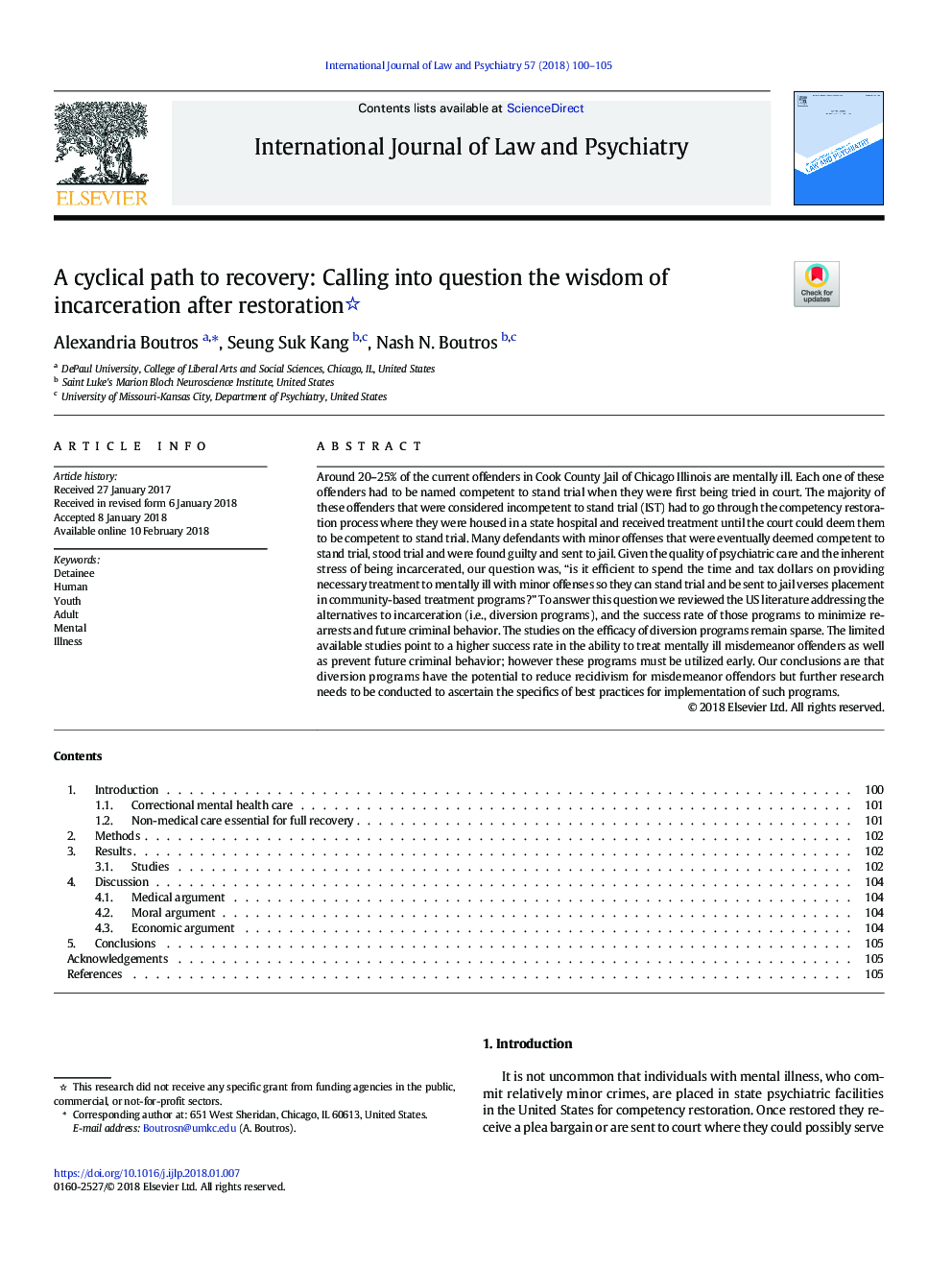| Article ID | Journal | Published Year | Pages | File Type |
|---|---|---|---|---|
| 6554533 | International Journal of Law and Psychiatry | 2018 | 6 Pages |
Abstract
Around 20-25% of the current offenders in Cook County Jail of Chicago Illinois are mentally ill. Each one of these offenders had to be named competent to stand trial when they were first being tried in court. The majority of these offenders that were considered incompetent to stand trial (IST) had to go through the competency restoration process where they were housed in a state hospital and received treatment until the court could deem them to be competent to stand trial. Many defendants with minor offenses that were eventually deemed competent to stand trial, stood trial and were found guilty and sent to jail. Given the quality of psychiatric care and the inherent stress of being incarcerated, our question was, “is it efficient to spend the time and tax dollars on providing necessary treatment to mentally ill with minor offenses so they can stand trial and be sent to jail verses placement in community-based treatment programs?” To answer this question we reviewed the US literature addressing the alternatives to incarceration (i.e., diversion programs), and the success rate of those programs to minimize re-arrests and future criminal behavior. The studies on the efficacy of diversion programs remain sparse. The limited available studies point to a higher success rate in the ability to treat mentally ill misdemeanor offenders as well as prevent future criminal behavior; however these programs must be utilized early. Our conclusions are that diversion programs have the potential to reduce recidivism for misdemeanor offendors but further research needs to be conducted to ascertain the specifics of best practices for implementation of such programs.
Related Topics
Health Sciences
Medicine and Dentistry
Forensic Medicine
Authors
Alexandria Boutros, Seung Suk Kang, Nash N. Boutros,
